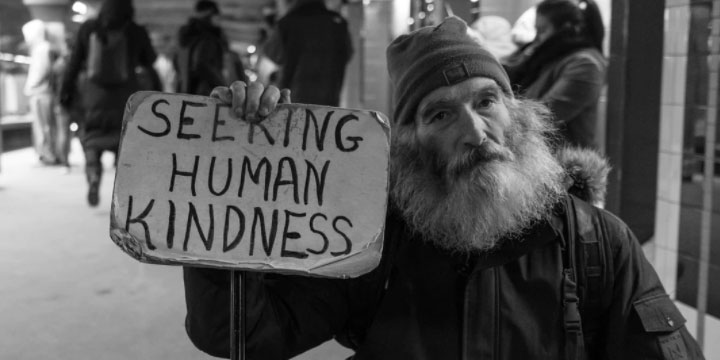Well, this is another indication of why the United States should exit the United Nations:
The United Nations approved a resolution targeting Israel and denying Judaism’s link to the Temple Mount in Jerusalem on Wednesday in a 129-11 vote.
The resolution referred to the Temple Mount exclusively by its Muslim name, al-Haram al-Sharif. The text is part of a campaign by the Palestinian Authority, the governing body in charge of autonomous Palestinian regions in Israel, according to The Jerusalem Post.
Next time you hear some progressive talking about “unceded territory,” ask him or her about the Temple Mount.
[Open full post]An observer doesn’t have to be cynical to wonder why the Huffington Post published its extensive article warning of the RI Political Co-Op’s division of Ocean State progressives yesterday. After all, the article was fueled in large part by “a left-wing Rhode Island activist who requested anonymity to protect professional relationships.” Anonymous sourcing in a case like this implies purpose.
Perhaps it has something to do with the traction that co-op leaders Matt Brown and Cynthia Mendes, the group’s candidates for governor and lieutenant governor, respectively, are getting with the political theater of camping outside the State House in the name of helping the homeless. Patrick Anderson reports for The Providence Journal:
By Wednesday morning, the five-tent encampment remained on the marble and brick plaza in front of the capitol. Mendes and Brown were among six people associated with the Rhode Island Political Cooperative who slept outside in solidarity with those who have no place to live, and they expect the encampment to grow.
Although the state police told the protesters they couldn’t stay where they were, they did not arrest anyone or forcibly remove the tents.
Homelessness is a good issue for progressives, and it illustrates their built-in political advantage. Mendes can uncharitably insist that “the political establishment” believes that people should freeze to death, but it’s not true. Our state’s political insiders don’t care about a lot of things that they should, but nobody believes people should freeze on our streets.
However, homelessness is a complex problem with contributing causes that range from mental health to education to housing policy to the economy, which could be broken down into a whole series of subcategories. The dirty secret from which Brown and Mendes’s theater distracts is that homelessness is at the bottom of a mudslide that progressive policies exacerbated. The complexity of the issue helps them, in other words, by making it difficult to trace the results back to the poorly considered policies that began the human catastrophe.
Here are some high-level examples: Taxation draws money out of the economy, which is where we come up with solutions for helping one another organically. Regulations absorb decision-making into government, where the driving motivation is to appear active so as to win elections, rather than actually solve problems so as to prove value. The focus on people as representatives of identity groups binds them to their flaws while making actual solutions for helping individual human beings more difficult to see. Progressive social policy destroys the cultural underpinnings of healthy families and healthy lives.
Most essentially, however, the damaging quality is that progressives behave as if their expressions of concern directly imply solutions, as if to say, “just fix it.” Because they believe the solutions are obvious, there must be some evil group refusing to do what is needed. And because “just fix it” solutions tend to cover up problems, rather than resolve them, applying this approach to issue after issue piles up the side effects and consequences until… mudslide.
Look to San Francisco to see how this escalates to turn progressive-run cities into hellholes. Across all of society, implied-as-obvious solutions reduce incentive to avoid unhealthy outcomes while undermining incentive to pursue healthy behavior.
At some point, Brown and Mendes will declare victory, pack up their tents, and return to their comforts, but only theatrical challenges are that easy to solve.
Featured image by Matt Collamer on Unsplash.
[Open full post]Sheesh! As Stephen Green suggests, getting this sort of information out to the public before an election seems like exactly the sort of thing that justify investing power in a news media:
Ablow was close to Hunter and also served as his onetime landlord, the book says. In February 2019, Ablow and Hunter discussed hosting a podcast together, with Hunter texting: “Dad is our first guest.”
Ablow responded: “Does he recall details tho, with the dementia and all.”
Hunter retorted: “Not much these days but since it’s all fake news anyway I don’t see the problem.”
Even now, after Biden is safely installed, the media won’t touch anything like this, despite having spent years promoting the proven hoax of Russian collusion in the Steele dossier.
[Open full post]All the mandates. All the fanatical insistence that naturally acquired immunity, let alone religious or medical scruples, will suffice to avoid vaccination against COVID-19. And now we read this, regarding the $3,000 vaccine bonuses that Democrat Governor Dan McKee negotiated with government employees in the Council 94 labor union:
Workers can get the bonus without being vaccinated for COVID-19 if they are granted a religious or medical exemption.
They truly are a class set apart living by different standards, and they really don’t care if we know it. In fact, they very much want us to know it, because there’s nothing we can do about it.
[Open full post]In October, the national good-government group Judicial Watch published training documentation from the Westerly, Rhode Island, school department received from a whistleblower. The training was developed by Rhode Island’s Highlander Institute, which recently transformed from a legitimate educational organization helping students with “learning differences” into one of the state’s leading promoters of the racist ideals of critical race theory.
The common thread is that “learning differences” provides the reasonable cover under which the activists smuggle radical left-wing concepts into the classroom. The idea is that “critical consciousness… can be a gateway to academic motivation and achievement for marginalized students.” Behind this reasonable objective, two tricks are played. The first is to assume that “marginalized students” have greater affinity for a left-wing ideology, and the second is to brush aside the opposing ideology that, presumably, has been serving non-marginalized students well.
How this works is going to take several posts to explain, but for the moment, let’s focus on one concept to which Judicial Watch makes direct mention. Slide 36 of 53 introduces the concept of “Individualism vs. Collectivism,” wherein a “sense of self & success is defined by one’s individual goals or defined by collective wellbeing & belonging.”
On its face, this seems like a straightforward lesson in cultural theory. Indeed, reading the side-by-side comparison of the two concepts on slide 37, Americans may recognize a need for balance. The success of Western Civilization has arguably been that it leverages both “independence and individual achievement” and “interdependence and group success.” Free marketers, in particular, make the point that the Western system of freedom, democracy, and capitalism maximizes our ability to collaborate even as we are driven by our own incentives.
One needn’t accept that theory in whole, however, to think that we can value “self-reliance” while also valuing “collective wisdom or resources of the group.” A healthy society wouldn’t see this question as either/or.
But the Highlander Institute does see it that way, as indicated by a box the slide puts around the “collectivism” column, making the choice. Another box in the upper right corner of the side explains why: “Many *BIPOC* students come from collectivist cultural backgrounds.”
The theory is, in other words, that minority students were raised into a collectivist perspective (trick #1), so teachers would help them to learn and achieve by structuring their lessons and activities in a way that leverages their cultural comfort.
The question not asked (trick #2) is whether the majority of students, who are not “BIPOC,” are more comfortable learning within a framework of individualism. Seventy-nine percent of Westerly students are white. To the extent there really are racial differences in learning styles, shouldn’t Westerly schools build their training and curricula around those students, while accommodating the other 21%?
As we’ll discuss in later posts, when it comes to the majority of students the standard shifts. The goal ceases to be maximizing motivation and achievement and becomes the enforcement of “equity.” Favored (minority) groups have their heritage, experiences, and cultures reinforced as positive and defining, while disfavored (majority) groups have their own heritage, experiences, and cultures deconstructed and maligned.
Featured image from a Rhode Island Department of Education report that includes only a single, blurry white student among its many photographs.
[Open full post]An interesting (and long) article appeared in the Huffington Post today, in which Daniel Marans details the friction within Rhode Island’s progressive movement. The tone is of fair reportage, but a point of view does come through, starting with the implicit critique of the Political Co-op in the headline: “A Progressive Civil War Threatens the Left’s Power in Rhode Island.” In other words, “get your act together, Matt Brown & Co., and stop throwing rocks at your own team.”
Generally, the article is worth a read for two reasons. First, it counts as evidence that the national progressive movement (and its big donors) are paying attention to Rhode Island. And second, it lays bare the two strategies Rhode Islanders can expect from leftist politicians: lure Rhode Islanders toward the same end-goal incrementally over time or push for complete power and radical change at the greatest possible speed. Per Marans:
The battle lines are basically: organized labor, the Rhode Island Working Families Party and many mainstream environmental groups arrayed on one side. The Co-Op, the Sunrise Movement’s Providence chapter with which the Co-Op is closely aligned, Black Lives Matter Rhode Island, and many members of the Providence chapter of the Democratic Socialists of America are on the other. Prominent members of the rival factions are barely on speaking terms.
Take particular note that organized labor, in Rhode Island, is fully a part of the progressive movement in Rhode Island. I’ve been saying this for a long time, but it’s clarifying to see a national publication put it beyond question. Member services may be how the unions raise their money and gain in influence, but the reason for their existence — which all members ultimately endorse if they don’t leave their unions — is to advance radical change across the spectrum of economic and social issues.
Republicans, in particular, ought to consider these paragraphs, as well:
In November 2020, Republican candidate Barbara Ann Fenton-Fung ousted Mattiello by a whopping 18 percentage points. She did it with quiet help from progressive volunteers.
“It wasn’t about her,” said a Rhode Island progressive activist who knocked doors for Fenton-Fung. “It was about the larger power structures of what it would mean for him to not be speaker any more. And one more Republican in that chamber doesn’t mean a thing.”
Republicans in Cranston were had. Whether as thanks for the help or because she’s much more radical than most people expected, the progressives didn’t just get another “meaningless” Republican in Fenton-Fung, they got one who is actively advancing their policies.
The most important thing for actual Republicans and other conservatives in Rhode Island to understand is that there is no comparable support for our side. Moreover, we cannot expect some sort of dramatic shift or backlash as progressives increasingly edge out moderates and other non-radicals. We have to make that happen, ourselves, and help each other to do so.
Featured image by Tengyart on Unsplash.
[Open full post]A network of Democrat and progressive legal teams has developed over the past two decades, and last year it arguably succeeded in frauding Joe Biden into the White House. Now Harvard University is turning on the spicket to create more, as Mark Hemingway reports for RealClearInvestigations:
Reporting the launch of the Election Law Clinic in April, Harvard Law Today said participating students will get course credit for working on political campaigns, as well as “hands-on litigation and advocacy work across a range of election law areas, with an initial focus on redistricting and voter suppression cases. Clinic offerings include federal and state litigation projects, as well as some advocacy opportunities.”
We’re past the time when it was reasonable to see these activities as anything other than a partisan and ideological effort to transform our country. That doesn’t mean they’re not within their rights, but it should mean we stop treating these institutions as non-partisan and non-ideological players in our society.
[Open full post]Here’s an interesting section from William Jacobson’s running notes from the Rhode Island Superior Court hearing in the case of the National Education Association of Rhode Island and Nicole Solas:
The court then moved onto that anti-SLAPP portion of the case. Union attorney says Solas didn’t present evidence of bad faith or motive of harassment. Point out that Solas didn’t file an affidavit, or other evidence, so can’t invoke summary judgment. (My note – Solas relied on pleadings and admissions of NEA-RI for her motion, so not true no evidence presented.) Says Solas presented no evidence on “why” NEA-RI brought the suit.
SLAPP is an acronym for “strategic lawsuit against public participation,” meaning that the plaintiff is using the process of the law to intimidate people who oppose them in the public sphere.
The first commenter on Jacobson’s post, Andy, puts his finger on an important point: “How is the fact that they are also trying to get her kicked off twitter NOT evidence in this case?” Add into the mix the union’s director diminishing her status as a stay-at-home mom on television.
While we’re at it, although this would be more difficult to prove as relevant, we can’t ignore that the only reason Nicole Solas is famous is that the South Kingstown school department (the other party the union sued) almost filed its own lawsuit against her. Unwanted attention led the school committee to pull up short of stepping into its own SLAPP suit, but the union had to know it was contributing to a pattern.
A bigger pattern is important to recognize, however.
Intimidation of one form or another is central to the operations of public-sector labor organizations, especially (lamentably) the teacher unions, usually with a veneer of plausible deniability. For instance, they’ll go to public hearings in order to disrupt and intimidate elected officials, which they’ll often do by shouting out things that seem unrelated, such as “speak up” or “you have to move the meeting.” I’ve seen them show up together to lay in wait for people they don’t like (such as former Providence Journal editorial page editor Ed Achorn) and then scatter when they see somebody (i.e., me) who will notice and report on it. In negotiations, they’ll go in nearby rooms and put on a performance of shouting to intimidate the managers.
These examples aren’t even getting into others that are more unions’ bread-and-butter strategies, like picketing fundraisers, inflating giant rat balloons, forcing elected officials to walk through gauntlet lines of same-colored t-shirts to get to meetings, and so on.
The biggest difference, here, is that their antics typically work to keep ordinary folks like Nicole Solas from stepping into the mix. Now that one has, it would be extremely refreshing for Judge Linda Rekas Sloan to acknowledge that the union has been caught out this time, but such an outcome would be surprising in the extreme in a Rhode Island court.
Featured image adapted from Eskay Lim on Unsplash.
[Open full post]Robert Shibley highlights the story of Carl Neuss, whose alma mater, Cornell University, was seeking a donation in the millions from him. He expressed concern about liberal indoctrination in the college, so the alumni relations folks found a few non-radical professors from among its 1,695 faculty members to talk with the potential donor. This “best foot forward on free speech” (as Shibley puts it) backfired, because the moderate professors confirmed Neuss’s concerns.
Many institutions of higher education are no longer places of free inquiry and genuine tolerance. They are, as Neuss feared, indoctrination mills, even if they’ll teach some useful skills along the way.
That is very strongly the impression I’ve been getting from my alma mater, the University of Rhode Island, over the past year, which (let’s just say) reduces my enthusiasm for the school as a graduate and as a parent.
[Open full post]Yes, of course an anecdote is not data, but this story rings the strange tone that’s been heard throughout public debates about COVID-19 and related treatments.
An elderly man on a family visit to the United States from Hong Kong was hospitalized with COVID-19. The hospital treated him with Remdesivir, and it didn’t work. The hospital refused to allow the patient to try Ivermectin, so the family went to court and won the right to bring in a doctor willing to administer it. Then the hospital refused to allow that doctor in because he wasn’t vaccinated, so the family went to court and won again.
He immediately began to recover and was out of the hospital within weeks.
[Open full post]





